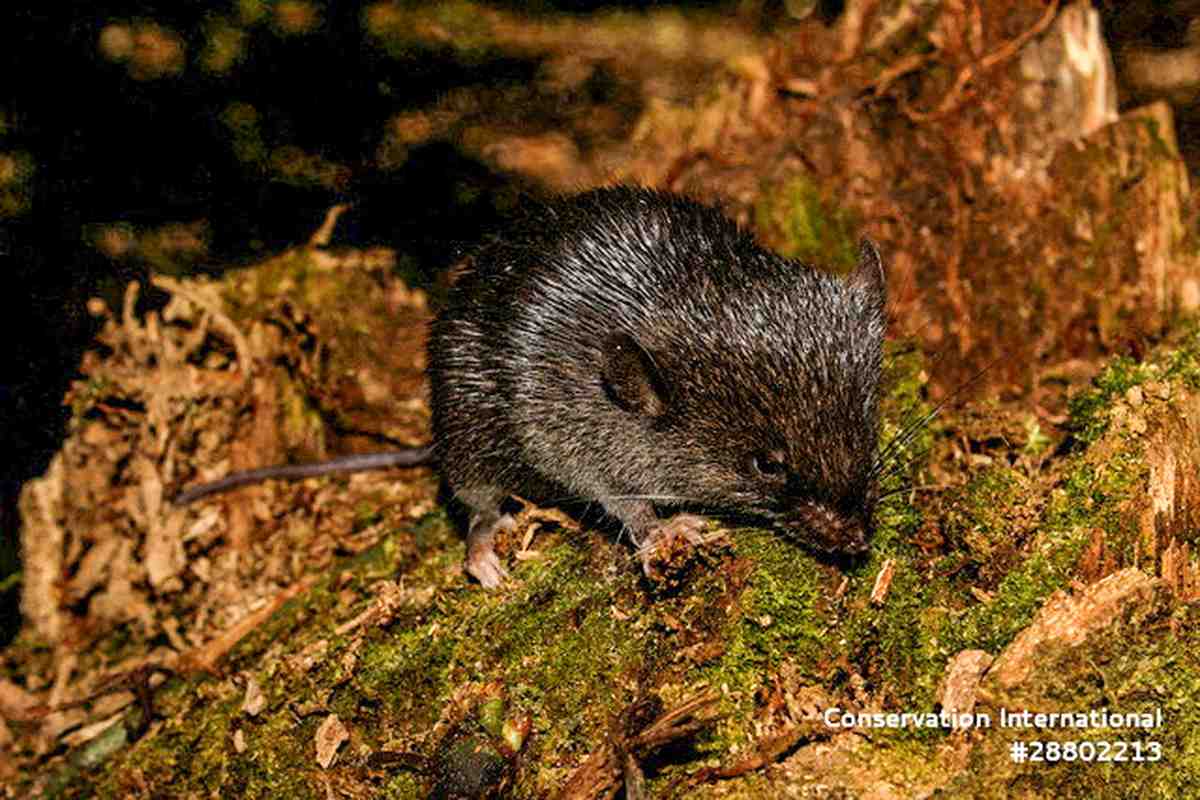
A specimen of spiny mouse, a species discovered on a Conservation International Rapid Assessment expedition into the Alto Mayo Landscape in Peru, is seen in June 2022.
12:06 JST, January 9, 2025
LIMA (Reuters) — An “amphibious mouse” with partially webbed feet that eats aquatic insects was among 27 new species discovered during a 2022 expedition to Peru’s Amazon, according to Conservation International.
Scientists also discovered a spiny mouse, a squirrel, eight types of fish, three amphibians and 10 types of butterflies, Trond Larsen, head of Conservation International’s Rapid Assessment Program, told Reuters last month.
He added that another 48 species found by investigators were potentially new, but needed further study.
The new species were found in Alto Mayo, a protected area with several ecosystems, Indigenous territories and villages.
“Discovering so many new species of mammals and vertebrates is really incredible, especially in such a human-influenced landscape as Alto Mayo,” Larsen said.
The expedition between June and July 2022 was made up of 13 scientists plus local technicians and members of Indigenous groups.
“It was really fantastic to work so closely with the Awajun people. They have extensive traditional knowledge about the forests, animals and plants they live side-by-side with,” Larsen said.
Among the new species, Larsen highlighted the spiny mouse that has stiff fur, the amphibious mouse and a dwarf squirrel that measures 14 centimeters.
“[The squirrel] fits so easily in the palm of your hand. Adorable and beautiful chestnut-brown color, very fast,” Larsen said. “It jumps quickly and hides in the trees.”
Another favorite discovery was the blob-headed fish, a type of armored catfish, he said.
A total of 2,046 species were recorded during the 38-day expedition using camera traps, bioacoustic sensors and DNA sampling. Among them, 49 were classified as threatened, including the yellow-tailed woolly monkey and the tree monkey.
Larsen said the discoveries reinforced the need to protect the area.
“Unless steps are taken now to safeguard these sites and help restore parts of the landscape … there’s a strong chance they won’t persist in the long term,” Larsen said.
Top Articles in Science & Nature
-

Japan Institute to Use Domestic Commercial Optical Lattice Clock to Set Japan Standard Time
-

Japan to Face Shortfall of 3.39 Million Workers in AI, Robotics in 2040; Clerical Workers Seen to Be in Surplus
-

Record 700 Startups to Gather at SusHi Tech Tokyo in April; Event Will Center on Themes Like Artificial Intelligence and Robotics
-

iPS Treatments Pass Key Milestone, but Broader Applications Far from Guaranteed
-

iPS Cell Products for Parkinson’s, Heart Disease OK’d for Commercialization by Japan Health Ministry Panel
JN ACCESS RANKING
-

Japan PM Takaichi’s Cabinet Resigns en Masse
-

Japan Institute to Use Domestic Commercial Optical Lattice Clock to Set Japan Standard Time
-

Israeli Ambassador to Japan Speaks about Japan’s Role in the Reconstruction of Gaza
-

Man Infected with Measles Reportedly Dined at Restaurant in Tokyo Station
-

Videos Plagiarized, Reposted with False Subtitles Claiming ‘Ryukyu Belongs to China’; Anti-China False Information Also Posted in Japan























